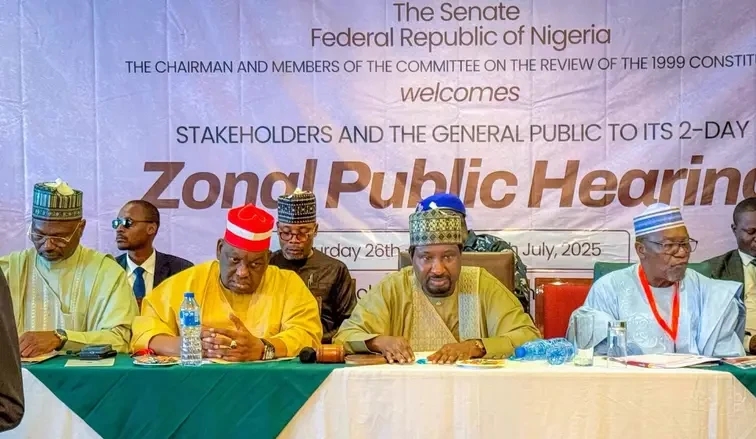Communities in Nigeria’s North-West region have intensified demands for the creation of multiple new states, framing the proposals as pathways to equitable development, enhanced security, and decentralized governance. The calls were formalized during a two-day public hearing organized by the Senate Committee on Constitutional Review, held over the weekend in Kano, as part of nationwide efforts to amend the country’s 1999 constitution.
Proponents outlined plans to carve out seven new states from existing boundaries, including Bayajidda and Karaduwa (Katsina), Kainji (Kebbi and Niger), Tiga and Ghari (Kano), Gurara and New Kaduna (Kaduna), and Hadeja (Jigawa). Advocates emphasized historical, economic, and administrative justifications, arguing that smaller states would bring governance closer to local populations and unlock untapped resources.
Ahmed Musa Ibeto, chairman of the Kainji State Movement, detailed plans for a state spanning Zuru Emirate in Kebbi and Kontagora and Borgu Emirates in Niger. Citing colonial-era administrative ties dating to 1902, he projected the proposed state would cover 36,800 square kilometers—surpassing 10 current states in size—and house 2.2 million residents. “This isn’t just about geography,” Ibeto said, noting that the move could address regional security challenges and ensure fair resource distribution.
Similarly, Mark Jacob, representing the Gurara State campaign, highlighted broad political backing, including support from Kaduna’s governor and legislative assembly. The proposed Gurara, he argued, boasts resources like ginger and columbite, which could reduce financial dependence on federal funds if mined and processed locally. “Our vision is self-sufficiency, peace, and economic diversification,” Jacob stated, adding that the proposal adheres to constitutional requirements under Section 8, which mandates grassroots consent for state creation.
Backers of Karaduwa State, meanwhile, outlined a blueprint for 11 local government areas in Katsina, emphasizing agricultural potential and political inclusion. They argued that localized governance would improve service delivery and tackle unemployment through agribusiness investments.
Deputy Senate President Barau Jibrin, chairing the hearings, did not comment on the likelihood of approval but reiterated the committee’s mandate to consider all proposals. Nigeria currently has 36 states, but proponents argue that restructuring is overdue to address demographic shifts and historical marginalization. Critics, however, caution that new states could strain fiscal resources without addressing systemic governance failures.
The constitutional review process, expected to span months, will require parliamentary and state legislative approval for any changes. As debates continue, the North-West’s push underscores broader national tensions between centralization and regional autonomy in Africa’s most populous nation.
